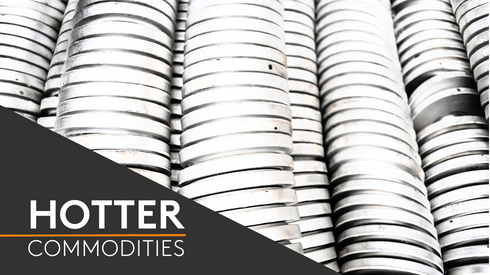The Chinese market for neodymium-praseodymium (NdPr) oxide and NdPr metal showed signs of stabilizing, with producers reluctant to further lower their prices, citing production costs.
Fastmarkets’ weekly price assessment for neodymium-praseodymium oxide 99% ratio (75:25), fob China was $50-52 per kg on Thursday, unchanged from June 13.
And Fastmarkets’ weekly price assessment for neodymium-praseodymium metal (Nd 75% Pr 25%), fob China was $62-64 per kg on Thursday, also flat from June 13.
NdPr is the main rare earth component of neodymium iron boron (NdFeB) magnets.
“Some sellers tried to push up offer prices earlier this week, but as downstream demand from the NdFeB magnets sector remains weak, it is hard [for buyers to accept the] increase,” a trader in China said.
“NdPr prices have already been approaching their bottom, so most sellers are unwilling to decrease prices further,” the trader added.
Prices for both neodymium oxide and praseodymium oxide were also flat on a CIF Rotterdam basis.
Fastmarkets’ weekly assessment for neodymium oxide 99.5%, cif Rotterdam was $53-55 per kg on Thursday, flat from June 13.
Data released by China’s customs database on Thursday shows that 6,100 kg of neodymium oxide were exported to Europe in May. Of this total, 4,000 kg were sent to the Netherlands, 1,900 kg to Belarus and 200 kg to the Czech Republic.
Fastmarkets’ price assessment for praseodymium oxide 99.5%, cif Rotterdam was $53-55 per kg on Thursday, flat week on week.
China’s dysprosium and terbium export prices were also flat, with most sellers also resisting a further decline in prices, market participants said.
“Buyers are still trying to press down prices for dysprosium and terbium, but we are unwilling to sell cheaper,” a producer said. “We are increasing our offer prices by a small range to test the market but haven’t finalized any deals yet.”
The producer added that supply constraints may be looming.
“The market is also monitoring import levels from Myanmar, from where China imports rare earth ore, to see whether a reduced volume [emerges], which might cause reduced supply for medium and heavy rare earth, including dysprosium and terbium,” the producer said.
Fastmarkets’ price assessment for dysprosium oxide 99.5%, fob China was $255-305 per kg on Thursday, unchanged week on week.
Fastmarkets’ weekly assessments for dysprosium metal min 99% and ferro-dysprosium 80% fob China were $330-355 per kg and $250-265 per kg respectively on Thursday, both unchanged from June 13.
Similarly, Fastmarkets’ price assessments for terbium oxide 99.99% and terbium metal min 99.9%, fob China were $790-820 per kg and $1,000-1,040 per kg respectively on Thursday, both flat week on week.
Export prices for high-purity gadolinium oxide prices were also stable, with market participants reporting that sellers were unwilling to decrease their prices, and subdued demand continuing to put pressure on the market.
Fastmarkets’ weekly price assessment for gadolinium oxide 99.99%-99.999% fob China was $28-31 per kg on Thursday, unchanged from June 13.
Find out about our full suite of rare earth prices and keep to date with all the rare earth news and insights here.






